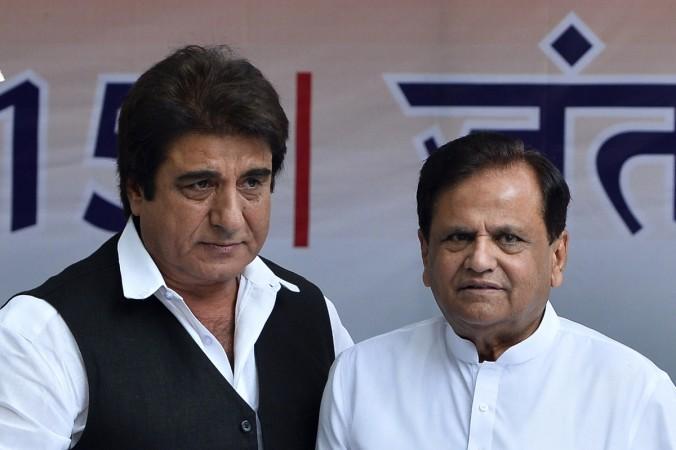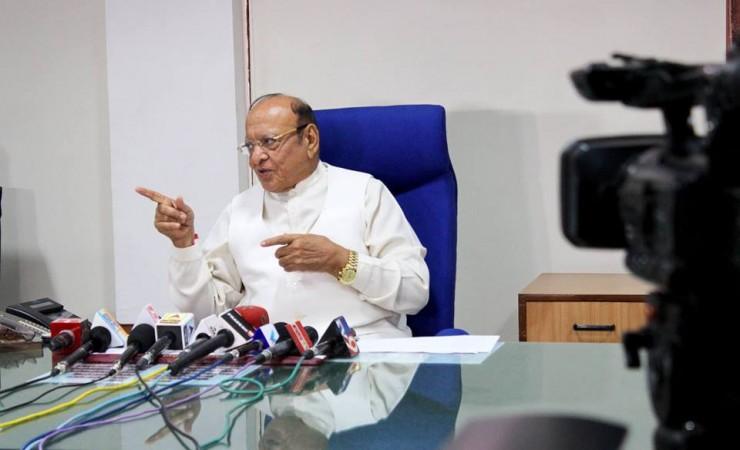
Ahmed Patel finally made it to the Rajya Sabha, although it was not an easy test to overcome. The leader, who is a close aide of Congress president Sonia Gandhi, posted a series of tweets after his win, along with his party who slammed the BJP saying it had tried all means to ruin democracy but failed ultimately.
The victory of Patel is undoubtedly a boost for the Congress which rarely wins nowadays in electoral battles. But one suspects this victory will more boost the top brass of the party and the coterie that follows it. As far as direct democracy is concerned and which will be tested in some months, one is doubtful whether Patel's victory would really make any difference.
The Congress gave its everything to see Patel victorious for his loss would have been seen as a blow to its president's authority and two years ahead of the next Lok Sabha elections, such an outcome would have devastated the morale of the party which is limping at the moment. His win thus assures the party's core of a safe immediate future.
A Rajya Sabha seat win is not enough for Congress
But the Congress can't afford to float alive just by winning a Rajya Sabha election. On the contrary, the way it sacrificed the rules of the direct democracy to save Sonia Gandhi in an indirect election, the repercussions could be seen in the upcoming Assembly elections in Gujarat. The party would have to return to the people to test its fortunes and therein waits the real verdict. If the Congress witnesses a further slide in the Assembly polls, even Patel's future in the Rajya Sabha will not look safe.
For those who think Patel's victory will boost the Congress's chances in the Assembly polls, it is important to consider the fact that why the party has not been able to win a single state election in Gujarat under his leadership since 1995, when the BJP took over?
Is Ahmed Patel a mass leader?
Had Patel really been a mass leader, why couldn't he stop Narendra Modi from accomplishing a hat-trick of wins in the state between 2002 and 2012, especially in the wake of the riots of 2002? Patel is certainly not a leader of the calibre of Madhavsinh Solanki or Amarsinh Chaudhary who had helped the Congress dominate the electoral space in Gujarat in the 1980s.

Moreover, Bharuch – the Lok Sabha constituency from where Patel had won between 1977 and 1984 – has now turned into a BJP bastion and the former has not been able to influence it in the last 25 years, which shows his limitations as a man of the masses. Even the Muslims of Gujarat do not see Patel as a leader of their own since he refrained from speaking strongly against Modi after the 2002 riots, fearing that it could see him getting tagged as a 'minority leader'. In a state where majoritarian sentiments rule roost, such a political ploy could have been suicidal.
Vaghela's exit is an equally strong blow
The Congress would also be apprehensive about the exit of Shankersinh Vaghela from its ranks just ahead of the high-voltage Rajya Sabha election. The veteran leader could have still earned some votes for the Congress but now, with his departure and the possibility of the formation of a third platform other than the BJP and Congress, it is more likely that the Opposition votes will get divided, helping the BJP's cause.
Will the electorate forgive Congress for taking away the representatives?
The cross-voting by the Congress MLAs during the presidential election last month and the latest dissidence show that the party's legislators are not happy with the way the show is being run. On the top of it, the act of ferrying over 40 MLAs to Bengaluru when Gujarat was witnessing serious floods would also not be forgotten by the electorate of Gujarat.
Political analysts will be keen to see how the script of the direct democracy in Gujarat unfolds after the Congress somehow saved the day in the test of indirect democracy.















